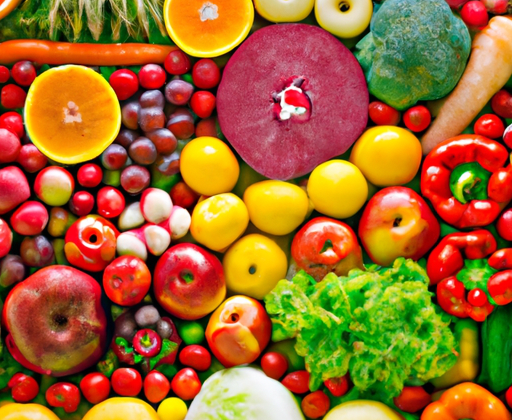Hey there! Get ready to learn about allergens.
So, let’s start by defining what allergens actually are. Allergens are substances that cause an allergic reaction in some people. This can range from mild symptoms like a runny nose or hives, to severe reactions like anaphylaxis.
Now that we know what we’re dealing with, let’s get into the nitty gritty. There are a handful of common allergens that people tend to react to. These include grains, dairy, nuts/legumes, shellfish, and eggs. It’s important to be aware of these allergens so you can avoid them if you need to.
But avoiding allergens can be tricky, so here are some tips to help you out. Make sure to read food labels carefully, educate yourself on which ingredients to avoid, and choose fresh, unprocessed foods as much as possible.
Overall, it’s essential to know about allergens and how to avoid them if you or someone you know experiences allergic reactions. By being informed and taking precautions, you can stay healthy and safe.
Common Allergens – Sneaky Ingredients That Could Be Harming You
As someone who has struggled with food allergies for years, I know firsthand how difficult it can be to navigate the world of allergens. It seems like there are so many things that can trigger a reaction, from the obvious (like peanuts) to the not-so-obvious (like soy lecithin).

Many people are aware of the gluten-free trend, but grains like wheat, barley, and rye can also cause reactions in those with allergies. This is particularly challenging because grains are used in so many foods, from bread to pasta to cereal. Keep an eye out for hidden grains in sauces and seasoning blends.
Dairy – More Than Just Milk
Lactose intolerance is a common issue, but some people have allergies to the proteins found in dairy as well. This means avoiding milk, cheese, and yogurt, but also checking labels for ingredients like casein and whey.
Nuts/Legumes – Watch Out For Cross-Contamination
Nuts like peanuts, almonds, and cashews are notorious for causing allergic reactions, but legumes like soy and lentils can be a problem as well. Even if a product does not contain nuts or legumes as an ingredient, cross-contamination during processing can still be an issue.
Shellfish – A Tricky One To Avoid
Shellfish allergies can be particularly tricky to navigate because they can cause severe reactions, and shellfish is often used in unexpected ways – for instance, as an additive in seasonings and flavorings. Be sure to read labels carefully and inform servers at restaurants to avoid any chance of cross-contamination.
Eggs – Used In So Many Foods
Eggs are a commonly used ingredient in baking and cooking, and can also be found in surprising places like salad dressings and mayonnaise. If you have an egg allergy, be sure to check labels carefully and consider making your own versions of normally egg-containing foods.
How to steer clear of allergens without sacrificing taste
As someone who has dealt with allergies for years, I understand the difficulties that come with avoiding certain allergens. Here are some tips and tricks that I have picked up over the years that help me stay safe while still enjoying delicious food.
Read food labels with a fine-toothed comb
When grocery shopping, always read food labels thoroughly to avoid any allergens. Even if you have purchased a specific product before, it is essential to check every time for any ingredient or processing changes that could cause a reaction. Sometimes, allergens are hidden in the most unlikely places. For example, if you are allergic to wheat, you might be surprised to find it in soy sauce or licorice. Be extra vigilant when shopping and examine every ingredient listed on the food label.
Educate yourself on ingredients you’ve never heard of
If you come across any ingredient you have never heard of before while reading food labels, do an internet search to see what it is before consuming that product. Some ingredients have complex names that could make it challenging to know precisely what you’re consuming. Make sure you are well-versed in what you’re eating to avoid potential allergen exposure.
Choose fresh, unprocessed foods
Fresh, unprocessed foods are your best bet for avoiding allergens. This is because prepared and processed foods are often made up of many ingredients, making it easy to miss an allergen’s presence. Fresh foods, on the other hand, are usually sold in their natural state, so the ingredients are easy to identify.
Takeaway
When it comes to avoiding allergens, knowledge and perseverance are your key allies. It can be challenging to always stay on top of your allergen avoidance, but after some trial and error, it will become more manageable. With these tips in mind, you’ll be well on your way to staying safe and eating well.
4. My Final Thoughts on Allergens
Well folks, that’s all she wrote. To sum things up, allergens are substances that can trigger an allergic reaction in some people. It’s important to be aware of common allergens like grains, dairy, nuts/legumes, shellfish, and eggs to avoid unpleasant reactions. However, avoiding allergens doesn’t have to be a daunting task.
One way to stay safe is to read food labels carefully. Look for warning signs that indicate whether a food contains allergens. Another tip is to educate yourself on ingredients to understand what to avoid. Above all, choose fresh, unprocessed foods that will minimize the likelihood of allergic reactions.
Remember, being allergic to something doesn’t have to limit your food choices. There are plenty of substitutes available that can be just as flavorful. Whether you’re preparing meals for yourself or others, safety should always be top of mind. For more expert advice on storing food safely for allergy sufferers, I’d recommend checking out this helpful guide from Baked Occasions.
Stay vigilant, stay safe, and happy eating!

